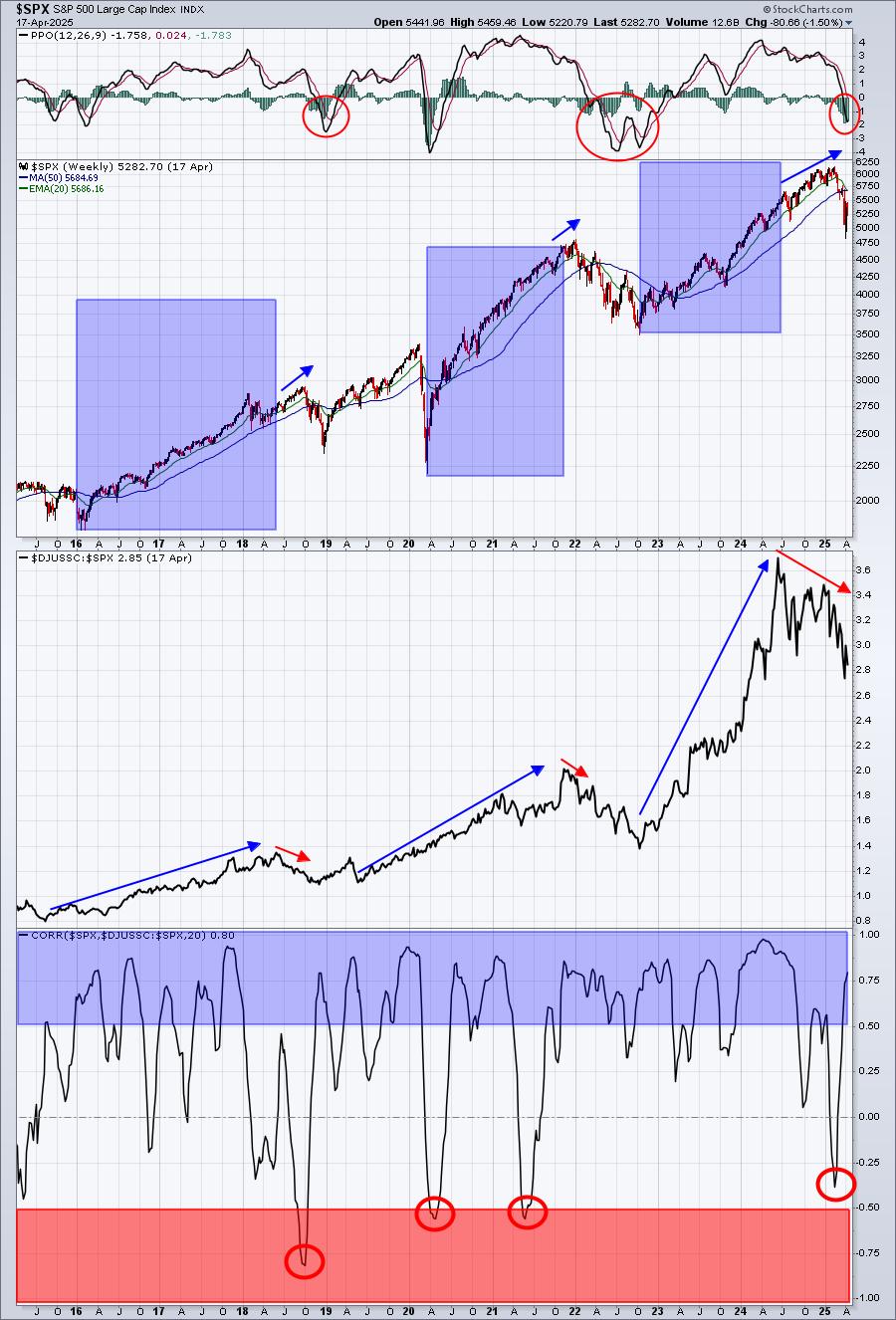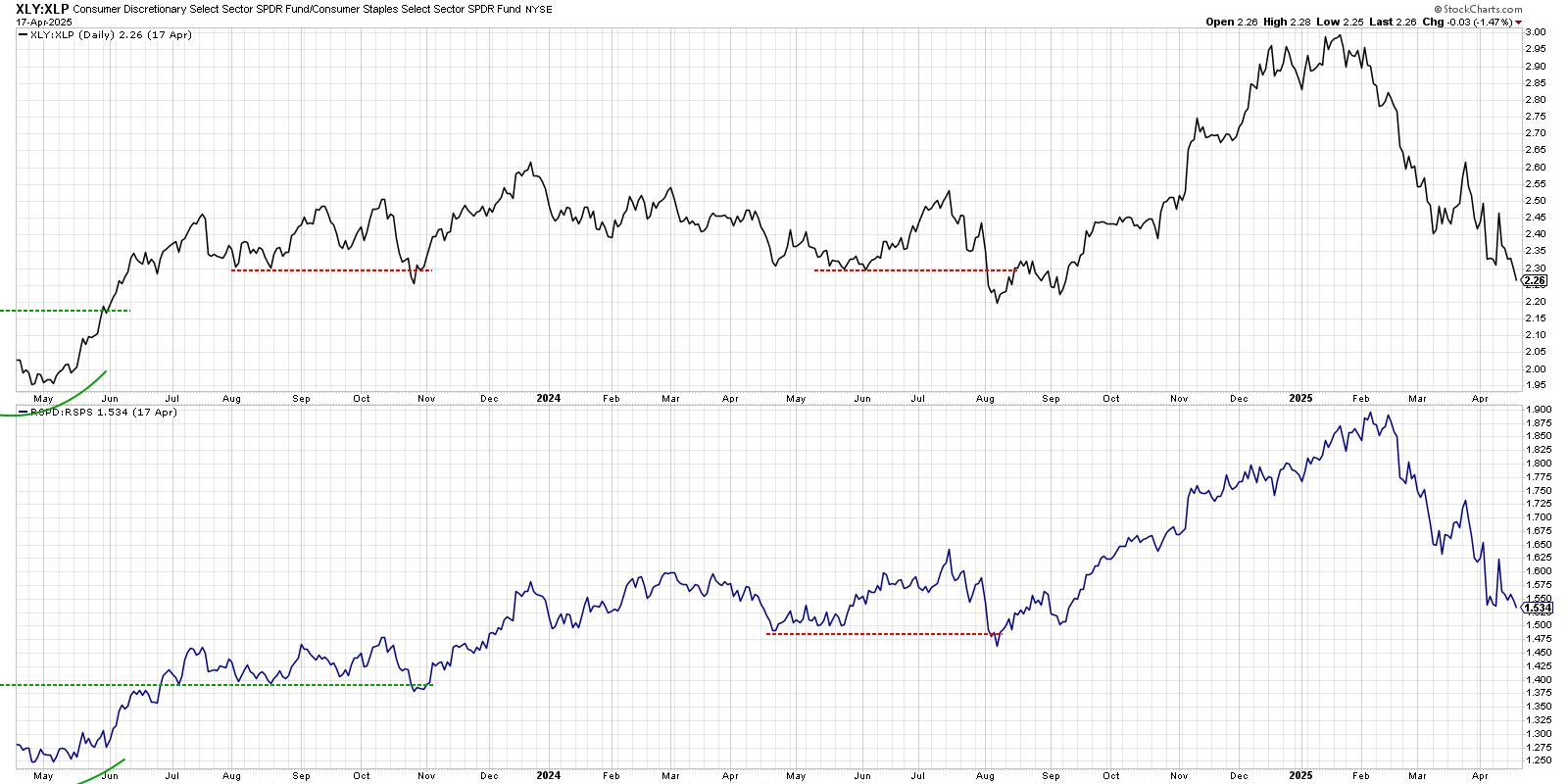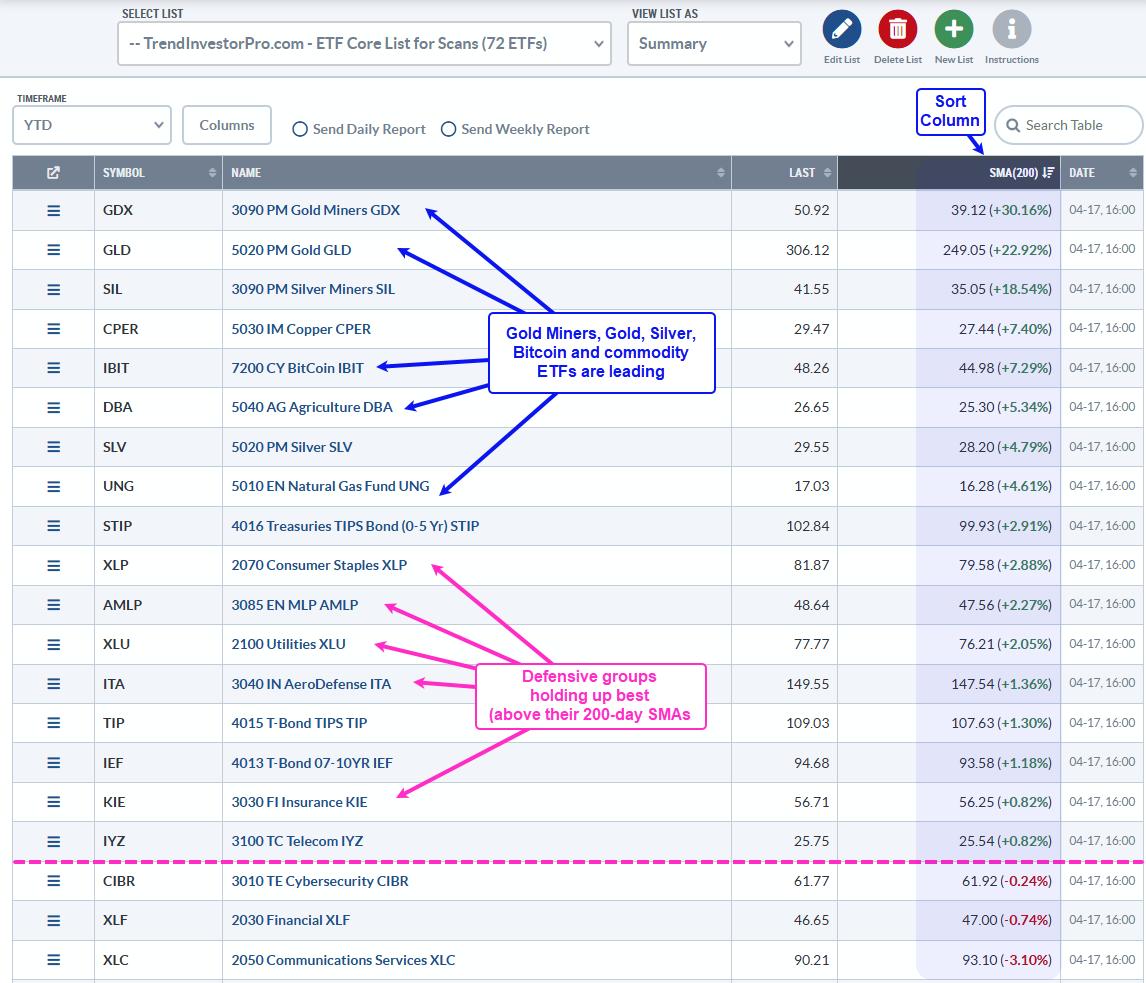Stocks weakened on Wednesday with the defensive sectors leading the way down. The Consumer Staples SPDR (XLP), Healthcare SPDR (XLV) and Utilities SPDR (XLU) declined 1.5% or more. Interest rate sensitive stocks continued to slide with the Real Estate iShares (IYR) and Telecom iShares (IYZ) falling around 2%. Homebuilders joined the decline as the Home Construction iShares (ITB) fell over 3%. While the surge in the 10-year Treasury Yield ($TNX) is not affecting the broader market much, it is certainly hitting the defensive and rate sensitive areas disproportionately. This weakness is not helping the broader market and selling pressure could spread. Before getting too bearish, note that the bigger trends are up and Monday marks the first trading day of June. Stocks tend to rise on the first trading day of the month and on Tuesdays, which means we could see a bounce next week.
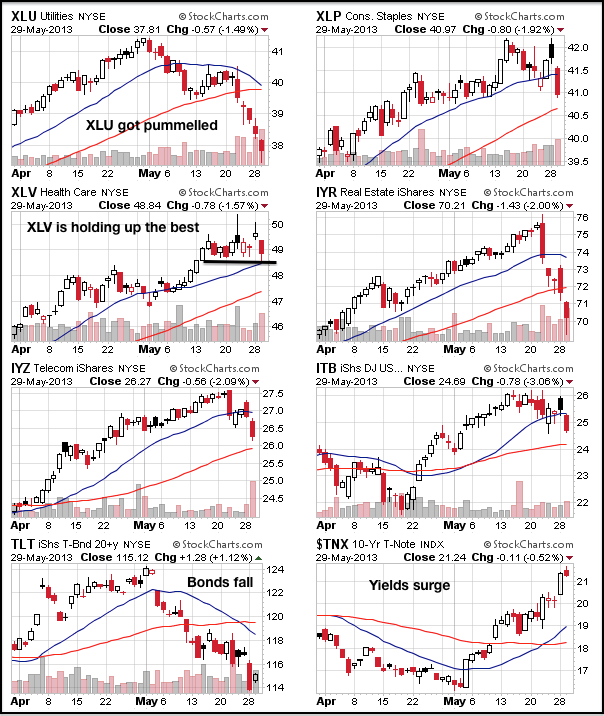

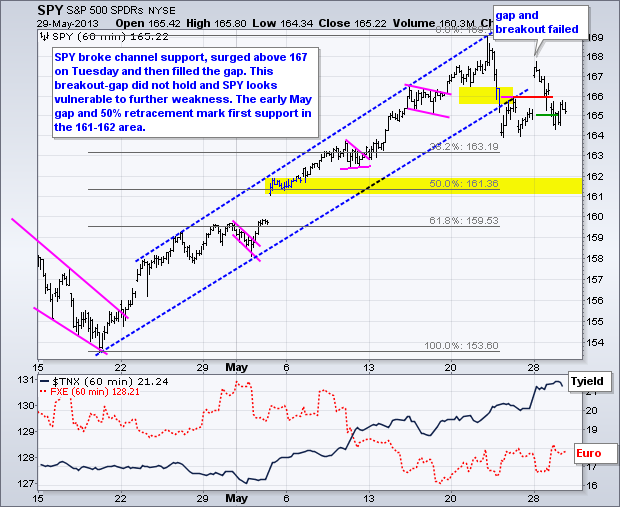
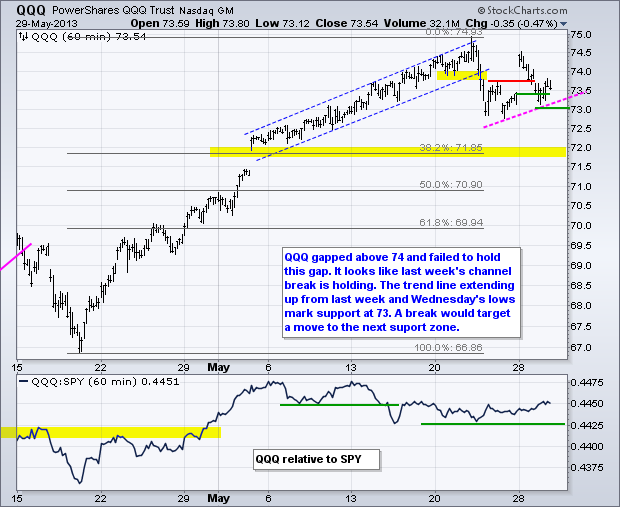
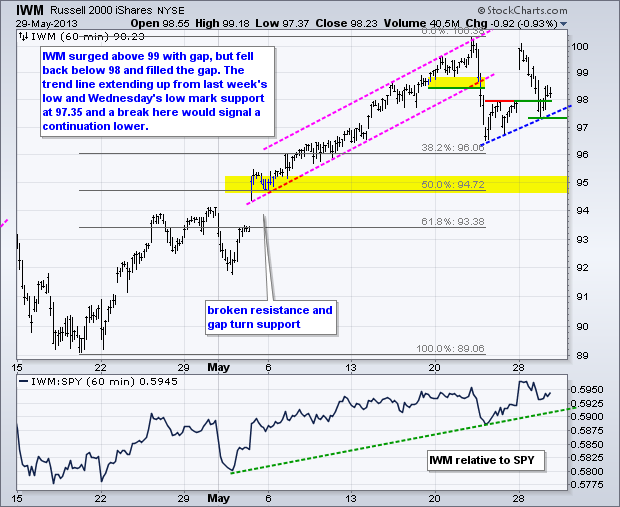
**************************************************************************
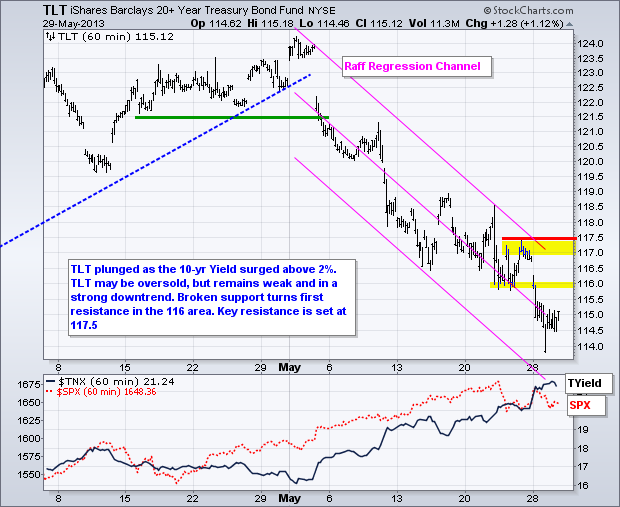
**************************************************************************
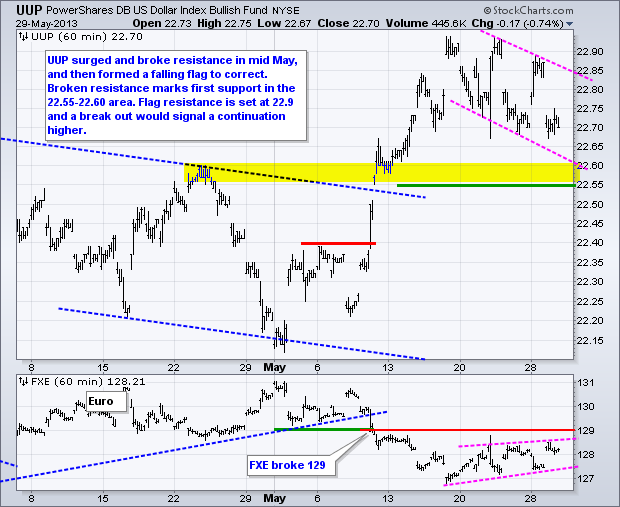
**************************************************************************
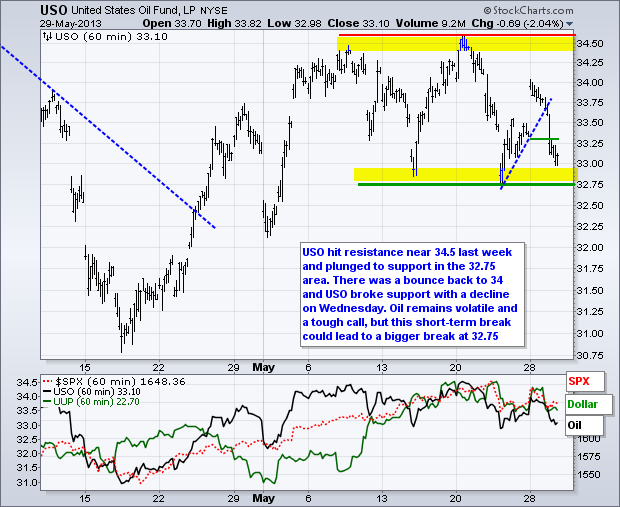
**************************************************************************
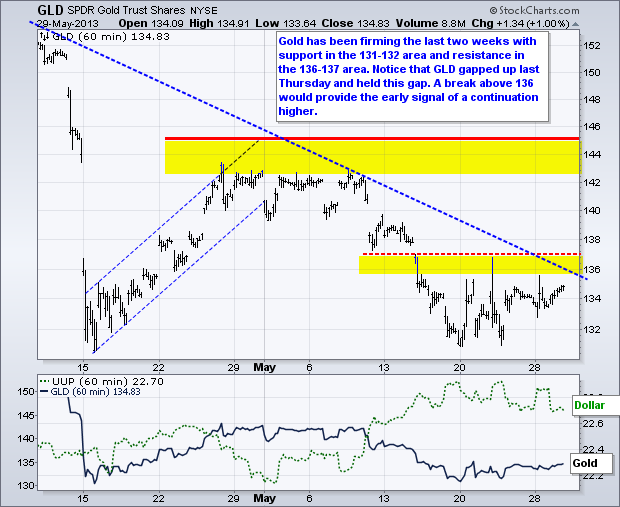
**************************************************************************
Key Reports and Events (all times Eastern):
Thu - May 30 - 08:30 - Jobless Claims
Thu - May 30 - 08:30 - GDP
Thu - May 30 - 10:00 - Pending Home Sales
Thu - May 30 - 10:30 - Natural Gas Inventories
Thu - May 30 - 11:00 - Oil Inventories
Fri - May 31 - 08:30 - Personal Income & Spending
Fri - May 31 - 09:45 - Chicago PMI
Fri - May 31 - 09:55 - Michigan Sentiment
Charts of Interest: Tuesday and Thursday
This commentary and charts-of-interest are designed to stimulate thinking. This analysis is
not a recommendation to buy, sell, hold or sell short any security (stock ETF or otherwise).
We all need to think for ourselves when it comes to trading our own accounts. First, it is
the only way to really learn. Second, we are the only ones responsible for our decisions.
Think of these charts as food for further analysis. Before making a trade, it is important
to have a plan. Plan the trade and trade the plan. Among other things, this includes setting
a trigger level, a target area and a stop-loss level. It is also important to plan for three
possible price movements: advance, decline or sideways. Have a plan for all three scenarios
BEFORE making the trade. Consider possible holding times. And finally, look at overall market
conditions and sector/industry performance.

About the author:
Arthur Hill, CMT, is the Chief Technical Strategist at TrendInvestorPro.com. Focusing predominantly on US equities and ETFs, his systematic approach of identifying trend, finding signals within the trend, and setting key price levels has made him an esteemed market technician. Arthur has written articles for numerous financial publications including Barrons and Stocks & Commodities Magazine. In addition to his Chartered Market Technician (CMT) designation, he holds an MBA from the Cass Business School at City University in London.
Learn More
